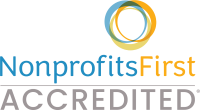Billing and Coding
Billing and Coding
Understanding reimbursement, coding and billing practices requires keeping up with the latest developments in medical financing and technology. We’ve provided resources to help you stay updated.
Teaching Physicians
The teaching physician policy concerns the criteria and documentation requirements for making payments under Part B to a physician who involves residents in patient care services. For more information on Teaching Physicians click here to view a report submitted by Jean Acevedo.
Advanced Beneficiary Notice
An ABN, Form CMS-R-131, is a standardized notice you or your designee must issue to a Medicare beneficiary before providing certain Medicare Part B (outpatient) or Part A (limited to hospice, home health agencies (HHA’s), and Religious Nonmedical Healthcare Institutions only) items or services. You must issue the ABN when:
1. You believe Medicare may not pay for an item or service;
2. Medicare usually covers the item or service; and
3. Medicare may not consider the item or service medically reasonable and necessary for this patient in this particular instance.
Hospices, HHAs, and Durable Medical Equipment (DME) suppliers must also follow additional guidelines for ABN issuance.
You should only provide ABNs to beneficiaries enrolled in Original (Fee-For-Service) Medicare. ABNs allow beneficiaries to make informed decisions about whether to get services and accept financial responsibility for those services if Medicare does not pay. The ABN serves as proof the beneficiary knew prior to getting the service that Medicare might not pay. If you do not issue a valid ABN to the beneficiary when Medicare requires it, you cannot bill the beneficiary for the service and you may be financially liable if Medicare doesn’t pay. For more information on ABNs click here to view a report done by the Centers for Medicare and Medicaid Services.
Audits
With increasing pressure on both governmental and private payers to reduce healthcare costs, it is inevitable that payers will continue to use audits to identify alleged overpayments and to demand that physicians repay these amounts. However, insurance auditor’s errors and their findings are not always correct. Moreover, even when insurance auditors correctly identify billing and coding errors, such findings do not necessarily indicate fraud and abuse.
Therefore, physicians need to prepare for and manage external payer audits just as they manage any other part of the business side of their practices to minimize the risk.
Agency for Health Care Administration
The Agency for Health Care Administration is responsible for the allocation of the state’s Medicaid funds, the licensure of the state’s healthcare facilities and the sharing of health care data through the Florida Center for Health Information and Policy Analysis. AHCA also provides information on Fraud and Abuse, HIPAA Compliance, Medicaid Cost Reimbursement, and Health Care Data.
Learn More
AMA CPT®: Current Procedural Terminology
The AMA is your trusted source for official Current Procedural Terminology (CPT®)—the most widely accepted medical nomenclature used to report medical procedures and services under public and private health insurance programs. The AMA provides information on Category I, II, and III codes, Multianalyte Assays with Algorithmic Analyses (MAAA) Codes, Errata and Technical Corrections, and CPT Process.
Learn More
AMA Medicare Preparation Kit
The American Medical Association provides robust information on Medicare through their Medicare Preparation Kit. Within the Kit, you will find information on Medicare participation options for physicians.
Learn More
National Technical Information Service
NTIS is an excellent source for Billing and Coding Information.
Learn More
|



